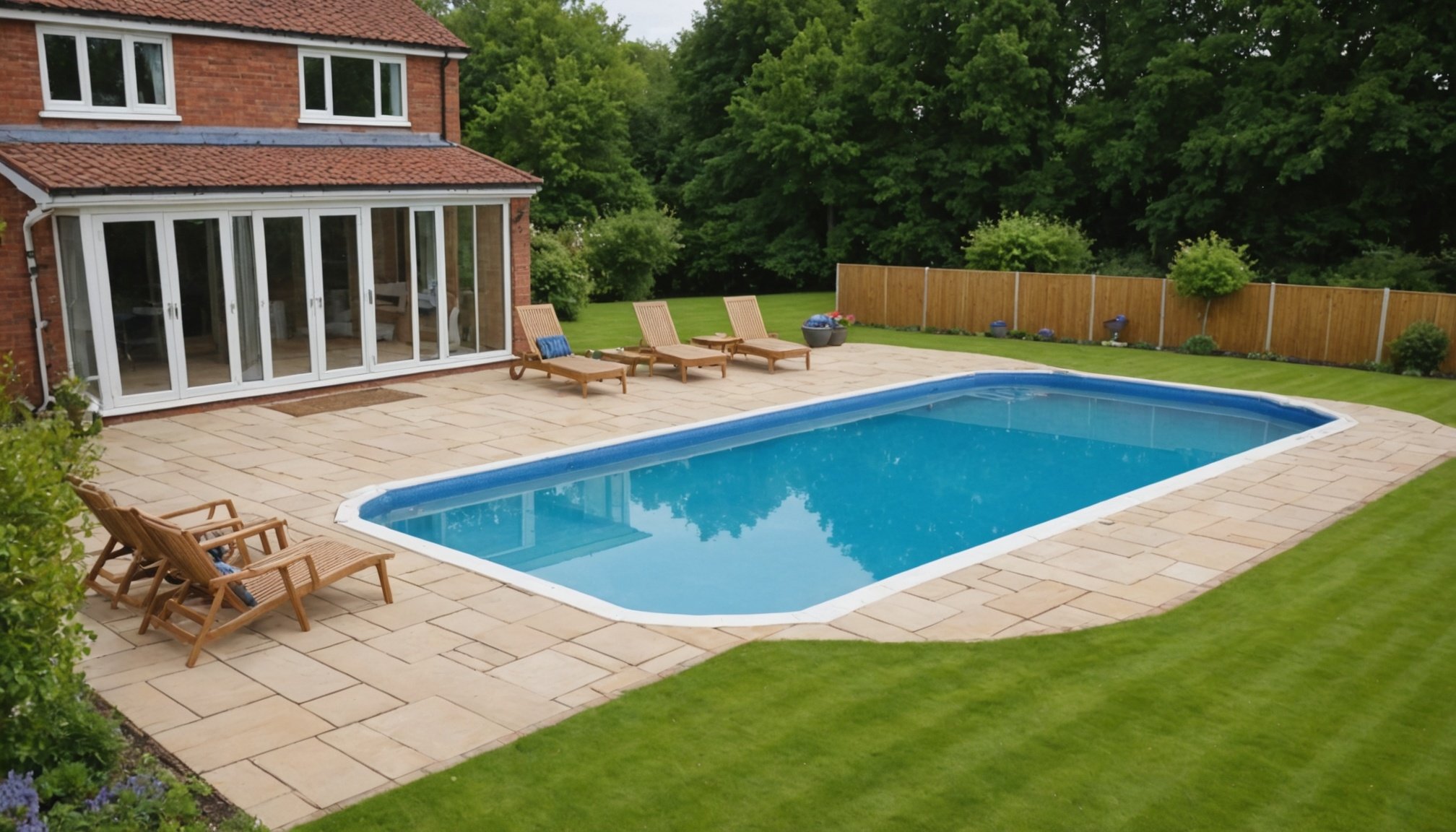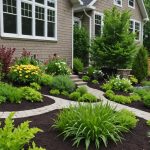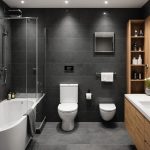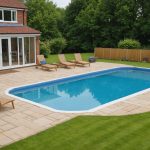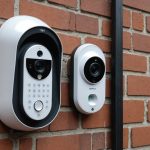Maximize Your UK Home Pool’s Water Retention: Harnessing Wind Barriers to Combat Evaporation
Understanding the Issue of Evaporation in Your Pool
Evaporation is one of the most significant factors contributing to water loss in your swimming pool. It is a natural process, but it can be exacerbated by various environmental conditions such as wind, temperature, and humidity. In the UK, where the climate can be quite unpredictable, managing evaporation is crucial to maintain the water level and temperature of your pool.
How Evaporation Affects Your Pool
Evaporation not only leads to water loss but also increases the energy costs associated with heating your pool. Here are some key points to consider:
Avez-vous vu cela : Enhancing Your UK Home Pool: The Benefits of Aquatic Plants for Superior Water Quality
- Water Loss: Evaporation can result in significant water loss, especially during hot and windy days. This means you will need to refill your pool more frequently, which can be costly and wasteful.
- Energy Costs: When water evaporates, it takes heat away from the pool, lowering the water temperature. To maintain a comfortable swimming temperature, you will need to use more energy to heat the pool, increasing your utility bills.
- Chemical Balance: Evaporation can disrupt the chemical balance of your pool water. As water evaporates, the concentration of chemicals like chlorine and other disinfectants can increase, requiring more frequent adjustments.
The Role of Wind Barriers in Reducing Evaporation
Wind barriers are an effective way to reduce evaporation rates and maintain the water level and temperature of your pool. Here’s how they work:
Types of Wind Barriers
There are several types of wind barriers you can use to protect your pool:
En parallèle : Essential Tips for Selecting the Perfect Pool Alarms to Keep UK Homes with Children Safe
-
Pool Enclosures: These are comprehensive structures that cover the entire pool area. They are highly effective in reducing evaporation and can also provide additional benefits like keeping debris out and enhancing safety, especially for families with young children.
-
Pros:
- Significant reduction in evaporation
- Keeps debris and insects out
- Enhances safety
-
Cons:
- Higher initial cost
- Requires installation
-
Solar Covers: These are floating covers that you can place on the surface of your pool when it is not in use. They help retain heat and reduce evaporation.
-
Pros:
- Easy to install and remove
- Reduces evaporation and heat loss
- Cost-effective
-
Cons:
- May not be as effective as enclosures
- Needs to be stored when not in use
-
Windbreaks: These are simpler barriers that can be installed around the perimeter of your pool area. They can be made from materials like wood, metal, or even plants.
-
Pros:
- Affordable
- Easy to install
- Can be aesthetically pleasing
-
Cons:
- May not be as effective as enclosures or solar covers
- Requires regular maintenance
Practical Tips for Implementing Wind Barriers
Here are some practical tips to help you implement wind barriers effectively:
Choosing the Right Wind Barrier
When choosing a wind barrier, consider the following factors:
- Budget: Determine how much you are willing to spend. Pool enclosures are generally more expensive than solar covers or windbreaks.
- Effectiveness: Consider the level of protection you need. If you live in an area with high winds, a pool enclosure might be the best option.
- Aesthetics: Choose a wind barrier that complements the design of your garden and pool area.
Installation and Maintenance
Proper installation and maintenance are crucial for the effectiveness of your wind barrier:
- Pool Enclosures: Ensure that the enclosure is installed by a professional to ensure it is secure and functional. Regularly inspect the enclosure for any damage or wear and tear.
- Solar Covers: Make sure to clean the solar cover regularly to maintain its effectiveness. Store it in a dry place when not in use to prolong its lifespan.
- Windbreaks: Regularly inspect and maintain your windbreaks to ensure they remain effective. Trim any plants used as windbreaks to keep them healthy and dense.
Additional Strategies to Reduce Evaporation
Besides using wind barriers, there are several other strategies you can employ to reduce evaporation and maintain your pool’s water level and temperature:
Use of Heat Pumps
Heat pumps are highly efficient in maintaining the temperature of your pool while reducing energy costs. Here’s how they work:
- Efficiency: Heat pumps can achieve efficiencies of up to 15 times the heat absorbed, making them much more efficient than conventional heaters.
- Installation: Ensure the heat pump is installed in a location with ample fresh air supply and integrated into the filter circuit of your pool.
- Cost Savings: Heat pumps can significantly reduce your heating costs while maintaining optimal pool temperatures.
Rainwater Harvesting
Harvesting rainwater can be a great way to supplement your pool water and reduce the need for frequent refills:
- Installation: Install a rainwater harvesting system that collects and stores rainwater from your roof.
- Use: Use the harvested rainwater to top up your pool, reducing the amount of tap water needed.
- Benefits: This method not only saves water but also reduces your water bills.
Solar Covers and Pool Covers
Using solar covers and pool covers can further reduce evaporation and heat loss:
- Solar Covers: These covers absorb solar energy during the day and retain it at night, keeping your pool warm.
- Example: A solar cover can retain heat up to 10°C (18°F) higher than an uncovered pool.
- Pool Covers: These covers can be used in conjunction with solar covers to provide additional protection against evaporation and debris.
- Example: A pool cover can reduce evaporation by up to 90% when used consistently.
Table: Comparing Different Wind Barriers and Strategies
Here is a comparative table to help you decide on the best approach for your pool:
| Option | Effectiveness in Reducing Evaporation | Cost | Maintenance | Additional Benefits |
|---|---|---|---|---|
| Pool Enclosures | High | High | Regular inspection and repair | Enhances safety, keeps debris out |
| Solar Covers | Medium to High | Medium | Regular cleaning and storage | Retains heat, cost-effective |
| Windbreaks | Medium | Low to Medium | Regular maintenance | Aesthetically pleasing, affordable |
| Heat Pumps | N/A | High | Regular maintenance | Highly efficient, cost savings |
| Rainwater Harvesting | N/A | Medium to High | Regular maintenance | Reduces water bills, saves water |
| Pool Covers | High | Medium | Regular cleaning and storage | Reduces evaporation, keeps debris out |
Quotes and Insights from Experts
Here are some insights from experts in the field:
- “Pool enclosures are not just about reducing evaporation; they also provide a safe and clean environment for your pool. They are a worthwhile investment for any pool owner,” says a representative from MY POOL DIRECT.
- “Heat pumps are the most efficient way to heat your pool. They extract heat from the ambient air, making them up to 15 times more efficient than conventional heaters,” explains an expert from Madimack.
Managing water evaporation in your UK home pool is crucial for maintaining its water level and temperature. By harnessing wind barriers such as pool enclosures, solar covers, and windbreaks, you can significantly reduce evaporation rates. Additionally, using heat pumps and implementing rainwater harvesting can further enhance the efficiency and sustainability of your pool.
Remember, every small step counts, and combining these strategies can make a significant difference in your pool’s water retention and overall maintenance costs.
Final Tips
- Regular Maintenance: Regularly inspect and maintain your wind barriers and other pool equipment to ensure they remain effective.
- Monitor Evaporation Rates: Keep an eye on your pool’s evaporation rates to adjust your strategies as needed.
- Consult Experts: If you are unsure about the best approach for your pool, consult with experts who can provide tailored advice based on your specific needs.
By following these tips and strategies, you can enjoy a well-maintained and efficient swimming pool that enhances your outdoor living experience.

